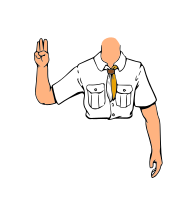Cub Scouts (Boy Scouts of America)
| Cub Scouting | |||
|---|---|---|---|
 |
|||
| Owner | Boy Scouts of America | ||
| Age range |
|
||
| Country | United States | ||
| Founded | 1930 | ||
| Membership |
|
||
|
|||
|
Website www |
|||
|
Standard uniform colors for Cub Scouting
|
|||
"Tiger Cubs" redirects here. For other uses, see .
Cub Scouting is part of the Scouting program of the Boy Scouts of America (BSA), available to boys from first through fifth grade, or 7 to 11½ years of age and their families. Its membership is the largest of the three BSA divisions (Cub Scouting, Boy Scouting, and Venturing). Cub Scouting is part of the worldwide Scouting movement and aims to promote character development, citizenship training, and personal fitness.
As early as 1911, Ernest Thompson Seton had developed a prototype program he named Cub Scouts of America that was never implemented. James E. West felt that having BSA divisions for younger boys (those under 12; the "younger boy problem") would draw away boys from the core program, which was Scout troops focused on the 12- to 17-year-old age group; thus he opposed such a program for some time. In spite of this, unofficial programs for younger boys started around this time, under names such as Junior Troops or Cadet Corps. The BSA obtained the rights to Lord Baden-Powell's The Wolf Cub Handbook in 1916 and used it in unofficial Wolf Cub programs starting in 1918. This led to an issue with Daniel Carter Beard who felt that the use of the British book was nearly disloyal to the United States of America. West encouraged the formation of the Boy Rangers of America, a separate organization for boys eight through twelve based on an American Indian theme. The Boy Rangers used the Scout Law and their Chief Guide, Emerson Brooks, was a Boy Scout commissioner in Montclair, New Jersey. The BSA finally began some experimental Cub units in 1928 and in 1930 the BSA began registering the first Cub Scout packs, and the Boy Rangers were absorbed.
The British Cubbing program used elements of Rudyard Kipling's Jungle Book series, with the Cubmaster taking the role of Akela and the assistant Cubmaster the role of Baloo. The American program also syncretized American Indian elements, with all Cub Scouts belonging to the Webelos tribe, symbolized by the Arrow of Light and led by Akela. Webelos was also an acronym meaning Wolf, Bear, Lion, Scout; the name was later given a backronym of "WE'll BE LOyal Scouts". The initial rank structure was Wolf, Bear and Lion, with ages of 9, 10 and 11. Dens of six to eight Cubs were entirely led by a Boy Scout holding the position of den chief.
...
Wikipedia




